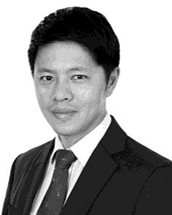All member states of UNESCO adopt a first-of-its-kind global agreement that defines common values and principles to ensure the healthy development of artificial intelligence
In brief
On 25 November 2021, the United Nations (UN) announced that all 193 member states of the United Nations Educational, Scientific and Cultural Organization (UNESCO), including Singapore, adopted a first-of-its-kind global agreement on the ethics of artificial intelligence (AI). The agreement focuses on the broader ethical implications of AI systems in relation to education, science, culture, communication and information; and articulates common values and principles to assist in the creation of legal infrastructure for the healthy development of AI.
Contents
Key takeaways
The rise of AI is well documented. AI is present in everyday life, where UNESCO has recognized that AI supports the decision-making of governments and the private sector; and helps to combat global problems such as climate change and world hunger.
As AI becomes increasingly used and relied upon, it is likely that further standards and regulations will emerge as governments and agencies begin to pay more attention to the development of AI.
Relevant stakeholders are encouraged to familiarize themselves with the common values and principles set out in the UNESCO agreement as they would likely be relied upon as guidance for future standards and regulations.
In more detail
While the UN has lauded AI’s functions in everyday life, from booking flights to steering driverless cars and being used in specialized fields such as cancer screening, UNESCO has rightly identified that AI technology is bringing about unprecedented challenges.
Challenges brought about by the use of AI include increased gender and ethnic bias; significant threats to privacy, dignity and agency; dangers of mass surveillance; and increased use of unreliable AI technologies in law enforcement.
The agreement aims to guide the development of the necessary legal infrastructure to ensure the ethical development of AI by providing a global normative framework, while giving member states the responsibility to apply the framework at state level.
In particular, the agreement provides a framework that articulates common values and principles such as the protection and promotion of human dignity and fundamental freedoms; diversity and inclusiveness; living in harmony and peace; safety and security; sustainability; privacy; and fairness and nondiscrimination.
Further, the agreement identifies corresponding policy actions through which member states can operationalize the values and principles identified in the agreement. Such policy actions include ethical impact assessments; data policies and data governance strategies; and international cooperation in discussions of AI-related ethical issues.
The full press release by the UN can be accessed here and the global agreement can be accessed here.





